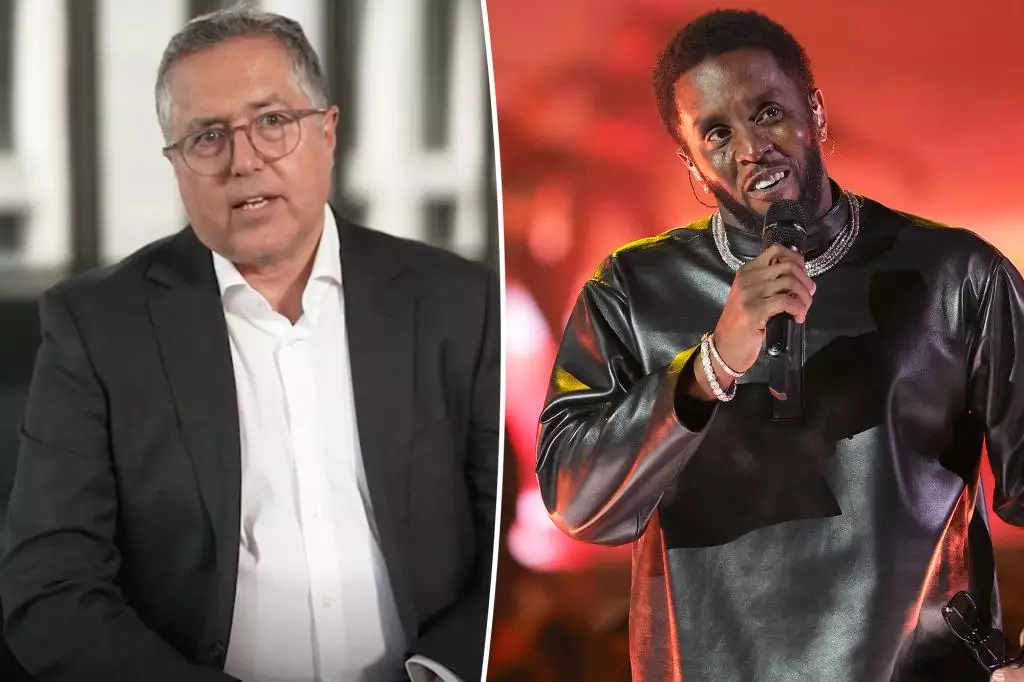The recent allegations against Sean “Diddy” Combs have sent shockwaves through the entertainment industry, revealing a darker side to a figure once primarily known for his musical contributions and entrepreneurial ventures. Combs’ legal troubles have taken center stage, particularly with damning details emerging from federal investigations. As more information unveils the circumstances surrounding his alleged activities, it becomes critical to analyze the implications and the broader societal context these accusations present.
The investigation revealed an astonishing inventory—it was reported that nearly 1,000 bottles of lubricant and baby oil were found during raids on Combs’ properties, supposedly indicating preparations for “freak-offs,” parties rumored to revolve around debauchery and excess. Marc Agnifilo, Combs’ attorney, was quick to downplay the claim that Diddy possessed such an unusual quantity of these products, humorously suggesting that buying in bulk from wholesale retailers like Costco could explain the number. However, this rationale raises more questions than it answers.
While the defense points to the potential of bulk purchasing, context matters. The sheer volume of lubricant and oil drawn attention, suggesting not just preparation for a party but potentially premeditated behavior on Combs’ part. Agnifilo’s comments, while intended to mitigate Diddy’s culpability, unwittingly contribute to a narrative that frames the rapper as someone engaged in dubious activities. The criticism he faced from media representatives like TMZ’s Harvey Levin is indicative of a public unwilling to accept such explanations, highlighting a broader skepticism surrounding celebrities and the privilege that often shields their questionable actions.
The contents of Diddy’s indictment made shocking allegations—namely, that the rapper’s so-called parties involved illicit drugs, coercion, and even violence. U.S. Attorney Damian Williams detailed the claims that Combs recorded these events, which escalated from parties into horrific situations where victims were allegedly drugged and filmed against their will. This belies a troubling reality where power dynamics breed exploitation.
The notion that a well-known figure would leverage embarrassing materials for manipulation speaks volumes about the societal issues of consent and power. In an era heavily focused on accountability—especially regarding sexual misconduct—Diddy’s case raises critical conversations about the intersection of fame and moral obligations. The disturbing stories of victims serve as a reminder of how those in positions of influence can easily abuse their power if unchecked.
Combs now faces several serious legal charges, including racketeering conspiracy and sex trafficking. These allegations carry hefty repercussions; if proven true, they not only tarnish his legacy but also underline significant issues surrounding celebrity culture. In a world where entertainers often escape consequences for their actions, this case may signify a shift towards accountability that could motivate a reconsideration of how we idolize and critique public figures.
It is vital to consider how these revelations affect the broader community—particularly those who may be influenced by Combs’ status. The significant power differential inherent in Diddy’s position and his reported actions against perceived vulnerable individuals should prompt a reflection on the ethics of celebrity. This goes beyond the lives affected; it beckons a cultural evaluation of the values seen in the industry.
The Road Ahead: Implications and Reflections
The ramifications of these allegations extend far beyond Diddy himself. They serve as a reflection of a systemic issue within the music industry—and society as a whole—concerning accountability, consent, and abuse of power. As his legal battles commence, we find ourselves at a critical intersection. There is potential not only for the victims to find justice but also for society to reconsider how it elevates individuals who wield immense power over others.
As the case unfolds, there will undoubtedly be ongoing debates surrounding celebrity culture, consent, and the societal responsibility of public figures. The final verdict may shape perceptions and inspire dialogues that could result in lasting change.
In essence, the chilling allegations against Sean Combs are a stark reminder of the hidden vices that can lurk behind celebrity façades. As the investigation continues, the imperative grows for a protective environment for victims and a call for accountability for abusers.

Leave a Reply